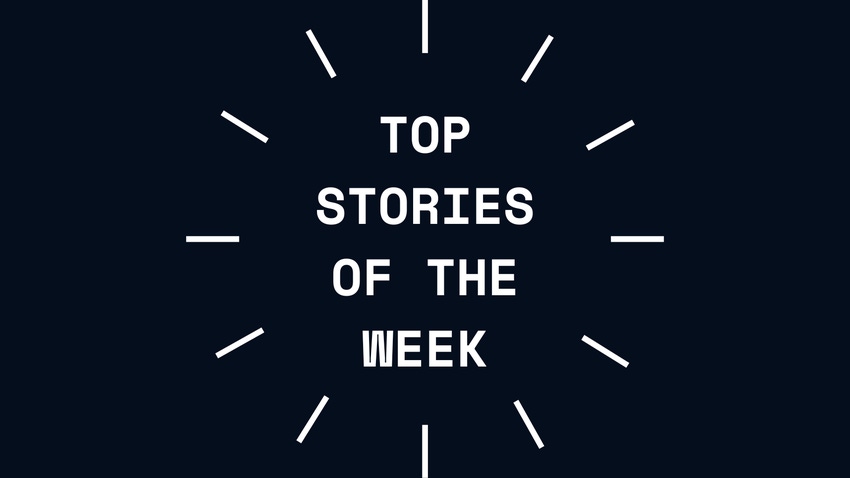This Week's Most Read: AI Takes Center Stage at CES 2024
Also, a new AI model that can jailbreak ChatGPT and Mickey Mouse enters public domain, in time for an AI image generator

Here are the most popular news stories on AI Business this week:
1. AI to Take Center Stage at CES 2024
AI is expected to take center stage for the first time at CES, the largest consumer technology show in the world and taking place in Las Vegas from Jan. 9 to 12.
From sessions on the intersection of AI and entertainment to how AI will reinvent marketing and how space stations can enhance emerging tech like AI, this year's CES dives into a wide variety of AI-related topics.
However, notably absent were any speakers from OpenAI and Meta as of this writing, while Microsoft and Google sent middle-management speakers. Microsoft used to send its CEOs to do keynote speeches. Meanwhile, Apple has been famously skipping CES for years even though it is a consumer tech event.
If you are going to CES, or attending virtually, here are some of the more interesting AI sessions worth considering.
2. AI Jailbreaks: 'Masterkey' Model Bypasses ChatGPT Safeguards
Computer scientists in Singapore have developed a large language model capable of generating prompts to exploit vulnerabilities in chatbots such as OpenAI’s ChatGPT.
Researchers from Nanyang Technological University (NTU Singapore) built a model, dubbed Masterkey, to test and reveal potential security weaknesses in chatbots via a process called ‘jailbreaking’ – where hackers exploit flaws in a system’s software to make it do something developers deliberately restricted it from doing.
The Masterkey model generated prompts designed to circumvent safeguards on Google Bard and Microsoft Bing Chat so they would produce content that breaches their developers’ guidelines. The model can also create new prompts even after developers patch their respective systems.
3. New AI Model Unleashes Public Domain Mickey Mouse
On New Year’s Day, Disney’s copyright covering its original 1928 Mickey Mouse short film − Steamboat Willie – expired and entered the public domain. Just in time, a French developer unleashed a new image generation model called Mickey-1928 that lets users create images of the original iconic Disney mascot.
That means users can now use AI to generate Steamboat Willie without penalty. The modern versions of Mickey, however, are still covered by copyright.
Mickey-1928 is a fine-tuned version of Stable Diffusion XL that has been trained on 96 stills from the film. Pierre-Carl Langlais, head of research at Opsci, a French AI research lab, built the model.
But the quality of the images generated by the model still needs to improve, as its outputs are impacted due to the lack of accessible high-quality versions of the cartoons, Langlais tweeted under the name Alexander Doria. The Hugging Face repository also said users “should not expect consistently good results” from the model.
4. GitHub’s Chief Lawyer on the EU AI Act's Impact on Open Source
Near the close of 2023, European lawmakers finally reached an initial agreement on how to regulate AI after years of impasse. The EU AI Act introduces a risks-based system that would categorize all AI systems based on their potential to affect citizen’s rights.
While free and open source AI models are said to be largely exempt from the Act, the text of the regulation is not yet final and not yet publicly available.
AI Business spoke with GitHub Chief Legal Officer Shelley McKinley to discuss how the Act will affect open source development. Microsoft-owned GitHub is the largest open source repository and community in the world.
5. Generative AI’s ‘iPhone Moment’: 3 Things Developers Need to Do – by Snowflake’s Prasanna Krishnan
When Apple co-founder Steve Jobs first launched the iPhone in 2007, the device sparked an enormous wave of publicity. Yet sales in the first year were relatively modest, soaring upwards only in mid-2008 when the App Store debuted. As more applications were added, sales climbed even further.
This highlights that the actual ‘iPhone moment’ was not the device launch itself. The true revolutionary moment came when people were able to easily find and download intuitive, fun applications. The App Store made apps incredibly simple to discover − far more so than any other mobile marketplace had ever done before − and also enforced the governance and security policies needed to protect users.
Generative AI now stands at the same precipice, and organizations should be acute to these learnings when riding this wave alongside their developers.
About the Author(s)
You May Also Like


.jpg?width=700&auto=webp&quality=80&disable=upscale)
.jpg?width=700&auto=webp&quality=80&disable=upscale)
.jpg?width=700&auto=webp&quality=80&disable=upscale)
.jpg?width=300&auto=webp&quality=80&disable=upscale)
.jpg?width=300&auto=webp&quality=80&disable=upscale)
.jpg?width=300&auto=webp&quality=80&disable=upscale)
.jpg?width=300&auto=webp&quality=80&disable=upscale)
.jpg?width=300&auto=webp&quality=80&disable=upscale)